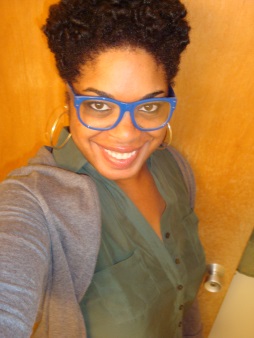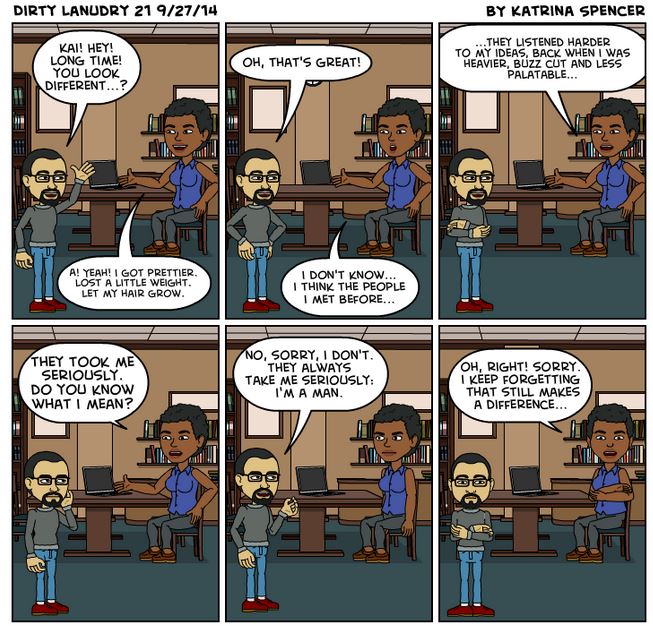 Ideas are delicate things. Gwendolyn Brooks said it better than I in her poem "kitchenette building": ""Dream" makes a giddy sound, not strong Like "rent," "feeding a wife," "satisfying a man."" My idea is to profile about six ‘people of color’ who work in my university main campus library as graduate assistants. I’d like an interview, accompanied by the interviewee’s image to appear on lis.illinois.edu . Can it be done? I’ve created the questions. I’ve responded to them. Why? What’s the purpose, you ask? To show new people of color at GSLIS that they, too, can aspire to these competitive and envied positions. To describe some of the tasks that we carry out in and on our jobs so new applicants can prepare their applications appropriately for similar ones. To aid these people in navigating the hiring process. To make the interviewees more approachable by making them visible, public figures. I challenge Quetzalli Barrientos, Kristine Mirate, Alonso Ávila, Thomas Mukonde and Nushrat "Brishti" Khan to participate. Raquel, are you working there, too? There will be no ice. There will be no buckets. There will be no viral videos. Just words and pictures. You all can feel free to keep it to 500-750 words, if that’s more comfortable. Here, I went first: Name: Katrina Spencer Expected graduation date: 2015 Area where you work in the library: Government Information Did you ever work in a library setting before starting on campus? If not, what type of experience do you believe made you competitive for your current job? No, I’d never worked in a library. Previously I was a writing center consultant and a university-level foreign language teacher. Now I am a blogger and a maker of multilingual comics. But no, I’d never worked in a library. If any experience made me competitive, I believe that it was one provided by GSLIS. Last Spring I participated in Alternative Spring Break (ASB) at the Library of Congress in Washington, D.C. It was an experience to which I was referred by Dr. Carol Tilley and which was supported in organization by Roy Brooks. I think the name “Library of Congress” appearing on my resume was impressive as I was being considered for government information. What was the hiring process like? Who was your main contact? I was in Vermont participating in an intensive, foreign language program funded by the U.S. Department of Education’s Foreign Language and Area Studies (FLAS) fellowship when I received an e-mail from Mary Mallory, the head of government information at UIUC. My assumption is that she found my resume within the “bank” (“pool” or “database”) of resumes representing people who want GAships. Yes, there is a place to “bank” your cover letter, resume and references and library representatives can pull from this bank of candidates in an effort to satisfy their staffing needs. Let me also say, however, that in addition to banking one’s resume, one applies for specific positions by contacting corresponding departments and representatives individually. It’s confusing. I know. However, both steps are important. I followed the instruction of banking my resume more than a year ago and got no responses. For the positions that were of specific interest to me, I applied to them individually, for example, a position in the International Area Studies Library (IASL). Of all my efforts, I got one interview, but did not secure the job. That means that I went without a GAship for my first year at GSLIS. Dr. Sharon Irish was kind enough to employ me in the meanwhile along with the Center for Digital Inclusion with various tasks. However, I feel that communicating that I waited an entire year before gaining employment in the campus library is important. For my second year, I didn’t even expect to hear anything from the library in terms of employment. However, with the faint possibility in mind, I revamped my resume, including all the wonderful LIS things I’d done during my first year at GSLIS—learned Portuguese, taken LIS 504 “Reference” and created lib guides I and II—and re-banked it. It was only then that I secured my position. I’d like to add, as an aside, that in hindsight, I don’t think I was ready for a position in the library when I first arrived to the university campus. Learning a new state (Illinois), a new discipline (LIS) and a new culture (GSLIS’ and UIUC’s) were more than enough for me for the first year. I needed that time to get oriented and to better identify my personal LIS trajectories. Honestly, working in the library represents its own culture and novelties. For someone like me who had no experience in any library and who was entirely new to LIS, taking on a GAship from the very start of one’s GSLIS tenure could have proven to be an overwhelming experience. What are your main responsibilities/ major projects? Aside from working at the Main Reference Desk and the Virtual Reference Desk, my main responsibility is to manage the Government Information Facebook page. My work aims to enhance our social media presence in both quality and quantity. I will be responsible for fostering the original ideas of “The Article of the Day,” “The Question of the Week” and “The Interview of the Month” in which the ways in which government information can be used are shared with an audience of potential patrons. Do you work alone or on a team? I work with Kim Looby, another graduate assistant, and Mary Mallory. Kim, for example, is responsible for managing the Government Information Twitter account. What is the most difficult part of your job? For the part that occurs at the Virtual Reference Desk, sometimes you’re responsible for responding to multiple chats at the same time, so, you have to manage multiple conversations, each having a series of engaged exchanges. For the Government Information portion, coordinating everyone’s schedule so that we show up to the same place at the same time with the same agenda can be challenging. What new skills are you acquiring? Working at the Reference Desks along with a wonderful team of GAs just really reinforces the idea that there is no one way of answering a patron’s query or leading him/her to the information he/she needs. Some might use our E-references; others might go for our Rolodex; and yet still others might approach our subject/lib guides. By being around several, different minds, you learn several, different ways to satisfy queries. How does your personal background impact/influence/inform your work? (Interpret freely.) Even with but two weeks under my belt of experience, I’m already finding ways to reflect the diversity I see in the world in my work. For example, as my supervisor and I prepare for the “Interview of the Month,” I wrote into the description of desirable candidates that interviewees were to include people from a broad range of ages, from diverse gender groupings, from different ethnic and racial backgrounds, from worldwide origins and from both academic and public (non-university) affiliations. After all, all of these people are affected by government information, therefore, the uses of government information should reflect the diversity of its users. What recommendations would you make to people newly interested in GSLIS and applying for work in the library? Be aggressive, but also follow the rules. Being aggressive can mean e-mailing, calling, knocking on doors and showing up to express interest in a position. Following the rules can mean not only applying to a specific department, but also sharing one’s general cover letter, resume and reference in the general bank/pool as requested. Ultimately what we need is experience in a library and/or information setting to make us more competitive on the job market so it is a good idea to be open to working in a variety of LIS scenarios. |
AuthorMy name is Katrina Spencer. I'm a librarian. Archives
February 2020
Categories |

 RSS Feed
RSS Feed